
How would you feel if a family member wrote a book called “Forgetting the Holocaust”?
That very question gets answered in a powerful play coming to The Fountain Theatre in Hollywood.
“If I Forget” is the story of the Fischer family in Washington, D.C. at the turn of the 21st century. The Fischer Family copes with differing ways of embracing Judaism, Israel, the Holocaust and each other.
Premiering in 2017, “If I Forget” is written by Tony Award-winner Steven Levenson who wrote the screenplays for acclaimed stage-to-screen adaptations “Dear Evan Hansen” and “Tick, Tick…Boom!”
The Los Angeles run of “If I Forget” is directed by Jason Alexander of “Seinfeld” fame. He told the Journal that after only a few pages of reading the script, he knew he had to direct it.
“It’s prescient in many ways, though it’s set in the early 2000s. It speaks to a political climate that is more critical today than it was even then.”
“It’s hard not to be attracted to the play — it is so smart, it is so articulate, it is very funny where it’s funny, it is painfully tragic where it’s intended to be,” Alexander told The Journal. “It’s prescient in many ways, though it’s set in the early 2000s. It speaks to a political climate that is more critical today than it was even then. So everything that I love about a great play is in play. It is funny. It’s compelling. It’s occasionally heartbreaking. It is articulate and smart and about stuff. And you put that combination together and then say, ‘Hey, would you like to sort of oversee this?’ And I go, ‘wow! I think I really would!’ It was just a hard thing to say no to. I had just come off of another show that I was directing on the East Coast and the timing was not great … But as soon as I got 20 pages into the play, I went, ‘I’ve gotta be a part of this!’”
When it comes to the performing arts, Alexander’s first love was theater. As a kid, he had no aspirations for television or film. He has been involved in plays and musicals since he was a kid — including the past 24 years since playing his legendary role George Costanza on “Seinfeld.”
Alexander told the late Bob Saget on his “Bob Saget Is Here For You” podcast that he knew he wanted to be an actor when he was 12-years-old (and at the time, still using his birth name, Jason Greenspan). That is when he saw Ben Vereen in the musical “Pippin” for the very first time. Vereen would win a Tony Award for Best Actor in a Musical that year. In the 1980s, Alexander was in five Broadway shows and four off-Broadway shows. In 1989, Alexander won the same Tony Award that his idol Vereen had won 16 years prior for his role in the musical “Jerome Robbins’ Broadway.”
A month later in July of 1989, “Seinfeld” premiered, and Alexander became a household name. Since the final episode of “Seinfeld” aired on May 14, 1998, theater has never been too far away from Alexander. He performed on the national tours of “The Producers,” “The Odd Couple,” and even reunited with “Seinfeld” writer Larry David in “Fish in the Dark.” Alexander went on to appear in dozens of films. And there hasn’t been a single year in over thirty years where Alexander didn’t lend his voice or his presence to television shows.
But he still finds his way back to theater, whether it’s on stage, the director’s chair, or as an instructor.
Alexander is finding that one of the perils of starring in a hit television show is that there will be many parts offered for him to play, most of which aren’t that alluring.
“I find the older I get, the roles that would come my way are often less interesting than I would want them to be,” Alexander said. “I get offered a lot of variations of things that I’ve done or people have known me for. And so they’re less interesting as an actor.” Consequently, he relishes his time in the director’s chair.
“Directing is really exciting for me because it allows me to engage my training, my experience, and my understanding and my enthusiasm on a much bigger playing field than I can as just the actor in the piece.”
“Directing is really exciting for me because it allows me to engage my training, my experience, and my understanding and my enthusiasm on a much bigger playing field than I can as just the actor in the piece,” Alexander said. “There are still huge, huge singular rewards from being the actor in the piece. And there are always times when I’ve directed a piece and I go, ‘oh, I wish I could play that role!’ But [directing] is a very different and very satisfying experience.”
Alexander credits the opportunity to direct “If I Forget” to Rabbi Daniel Bouskila, the Director of the Sephardic Educational Center and the rabbi of the Westwood Village Synagogue.
“It’s really [Bouskila’s] passion and enthusiasm for the play that brought it to the attention of The Fountain and ultimately to me,” Alexander said. Since “If I Forget” features several heated discussions about Israel, Judaism and the Holocaust, Alexander was comforted by Bouskila’s endorsement after seeing the play in New York at the Roundabout Theater.
“I didn’t need a rabbi to be at the initiation stage of this for me to be doing it,” Alexander said. “But the fact that a rabbi finds the arguments about Israel and Judaism in this play to be worthy of discussion and worthy to be seen, I think it is very telling and I think it does provide some comfort, if nothing else, for the theater.”
Rabbi Bouskila is a consultant on the upcoming production at The Fountain Theater.
“‘If I Forget’ opens up a rich dialogue about memory, aging, the Holocaust, Zionism and freedom of expression,” Bouskila said in a statement. “Ever relevant and meaningful for today, it will leave audiences talking long after the curtain falls.”
“If I Forget” begins as the Fischer family gathers in July 2000 following the dissolution of the Oslo Peace Accords between Israel and the Palestinian Authority. The patriarch of the family, 75-year-old Lou Fischer, and his three children in their 40s — Holly, Michael and Sharon — each take turns quarreling with each other about an array of hot-button issues. Their mother has passed, the future of Lou’s commercial property in a gentrifying neighborhood is in question, and Michael, a college professor, has just penned a new book titled “Forgetting the Holocaust” that is generating student petitions for his firing.
Without giving away too much of the story, there is a pivotal moment when Lou explains to Michael that he did indeed read his son’s book. But then Lou retells his own story of serving in the U.S. Army during World War II—and goes into gruesome detail of what he saw when his unit liberated the Dachau concentration camp. Lou concludes his story to Michael with, “For you, history is an abstraction. But for us, the ones who survived this century, this long, long century … there are no abstractions anymore.”
“If I Forget” is a story of communicating with your aging family, handling provocation and making sense of painful traumatic events in the past.
“If I Forget” is a story of communicating with your aging family, handling provocation and making sense of painful traumatic events in the past. The arguments among the Fischers reveal past family roles that too often ensnare the characters and dredge up the past. There is a universality to each of the Fischers. It won’t be hard for audiences to see one of their own family members as one of the characters on stage.
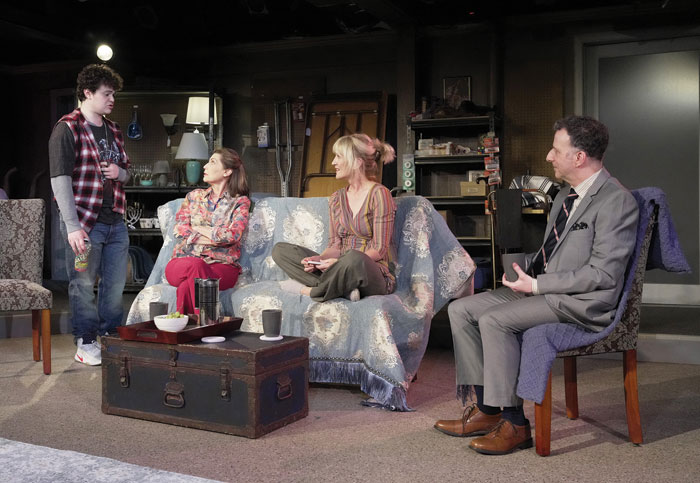
Síle Bermingham and Jerry Weil
Photo by Jenny Graham
The play is not just about Michael’s book with the provocative title. The book is a MacGuffin that leads the family into fiery, animated arguments.
In one of the most heated moments on the topic of Israel, Sharon says to her brother Michael’s wife Ellen (who is not Jewish), “Not to be rude, but, I’m not sure you really understand what these issues mean to people.”
Michael responds to his sister facetiously, “Right. Because only Jews are allowed to have an opinion on Israel. Everybody else has to just shut up and agree.”
Sharon rebuts, “This isn’t about opinions, Michael. This is about … Ellen has never had to worry about being put in a concentration camp because she’s Swedish.”
Ellen interjects, “Norwegian, actually.” Don’t be surprised if at this moment, there is an audible laugh from some of The Fountain Theatre crowd, while others’ blood pressure may boil at recalling similar conversation in their life.
“We live in a time — and this is the tragedy of Michael the character — we live in a time now of absolutism, that my point of view is the point of view.”
“We live in a time — and this is the tragedy of Michael the character — we live in a time now of absolutism, that my point of view is the point of view,” Alexander said. “It’s not a point of view. It’s not a part of the discussion. It is the absolute pinnacle of points of views: ‘Everyone who doesn’t conform to it is not just perhaps getting my point of view, they’re actually my enemy. They are lesser than me. They are to be demonized.
“That to some degree happens in the play.” Alexander sees this theme as a microcosm of global discourse on any point of view. He also said that his thesis on “If I Forget” is “you disregard your history at your own peril.”
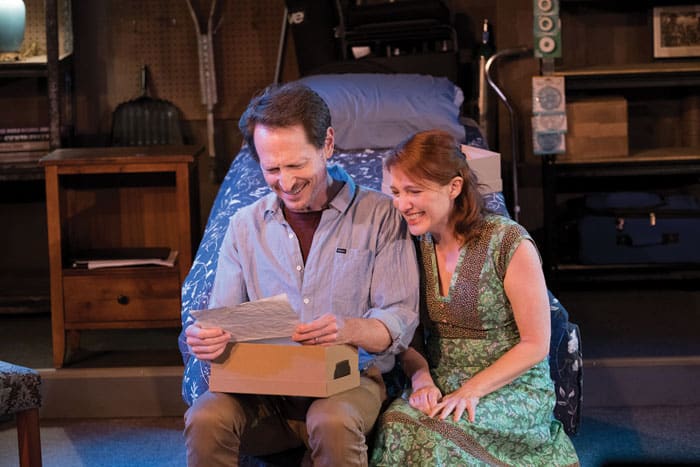
Photo by Jenny Graha
Alexander speaks confidently and proudly of the cast members. “They’re lovely people and they’re becoming a lovely ensemble. They understand the play. They’re passionate about the play, and they have the talent to pull it off so that there’s nothing to not love.”
He is no stranger to the Middle East, having been many times. Alexander used those experiences to discuss with the cast members of “If I Forget” the mindset and gravity of the many enduring conflicts suffered by the characters. At one point, he told them the story about the first time he ever visited Israel.
“I went [to Israel] under the auspices of the Anti-Defamation league, and we had this wonderful Israeli guide who was a complete atheist, and we were about to walk into Jerusalem for the first time through one of the gates. And he said, ‘Just think about this. As you prepare to move through this gate, you are about to enter a city that has never been at peace in the history of recorded time. Oh, welcome to Jerusalem!’ And you go, ‘yeah,’ and you’re wondering why the Israelis and the Palestinians right now can’t figure it out … It’s going to take extraordinary leaps of humanity to end that kind of conflict in any humane way. And so nothing’s easy and hence a very uneasy play.”
During a visit to Israel in 2011, Alexander advocated to government officials on behalf of an organization called The OneVoice Movement. OneVoice aims to engage with moderate Israelis and moderate Palestinians to try and broker their own peace accord. Alexander even had a publicized sit-down with then-President of Israel Shimon Peres at his home in Jerusalem. On the topic of a two-state solution between Israelis and Palestinians, Peres asked Alexander for his advice for reaching peace.
“The best advice is to not give up,” Alexander told President Peres. “There has been so much disappointment, but there are wonderful people working very hard within both communities. The whole point of OneVoice is to give voice to the moderates on both sides, and engagement in the process to become a partner in leadership on both sides.”
Alexander said that his relationship with his own Judaism hasn’t been “uneasy,” and he’s never had his Judaism threatened (outside of the ignorable Twitter troll). He described growing up in Livingston, New Jersey with parents who were devoted Jews culturally but just not religious. They did, however, hold on to religiosity for their own parents.
”I’m not terribly religious, but I am a proud, devoted Jew that, I mean, it drips outta my pores. I can’t have a conversation where some Yiddish thing doesn’t come outta me, or some sound that comes outta me or some point of view comes outta me isn’t Jewish.”
“We had a kosher home so that my grandparents could eat in our home. Not because my parents had any passion about kosher eating. When I was 14, 15, 16, there were people in my family who wanted us to be far more observant. And I was always wrestling with religion as a whole. I’m very spiritual. I’m not terribly religious, but I am a proud, devoted Jew that, I mean, it drips outta my pores. I can’t have a conversation where some Yiddish thing doesn’t come outta me, or some sound that comes outta me or some point of view comes outta me isn’t Jewish.”
Whether it’s the cast of the Fishers of D.C., the Greenspans of Livingston or the Alexanders of Los Angeles, audiences watching “If I Forget” will find their minds taken back to places of conflict and compromise with their own family history.
“If I Forget” runs through September 10 at The Fountain Theatre at 5060 Fountain Avenue (at Normandie) in Los Angeles. For reservations and information, call (323) 663-1525 or go to www.FountainTheatre.com.











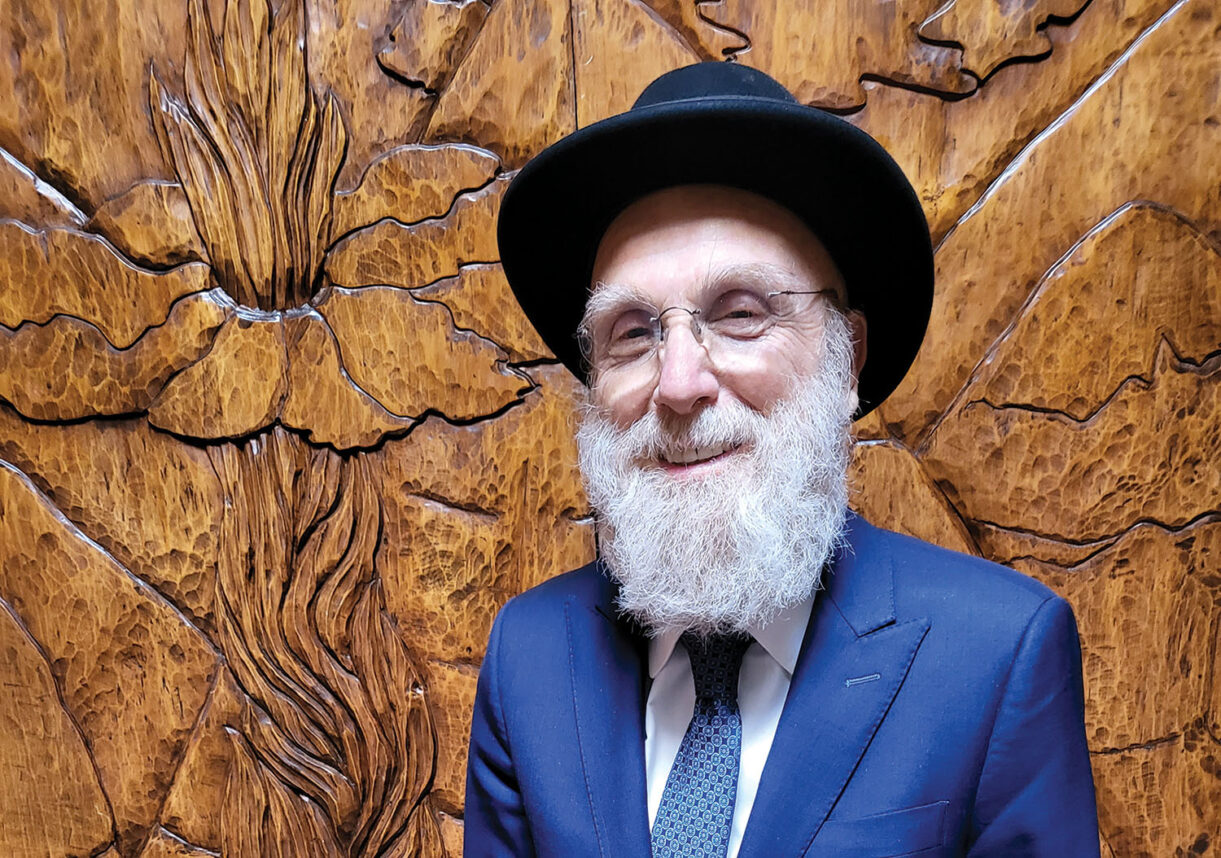
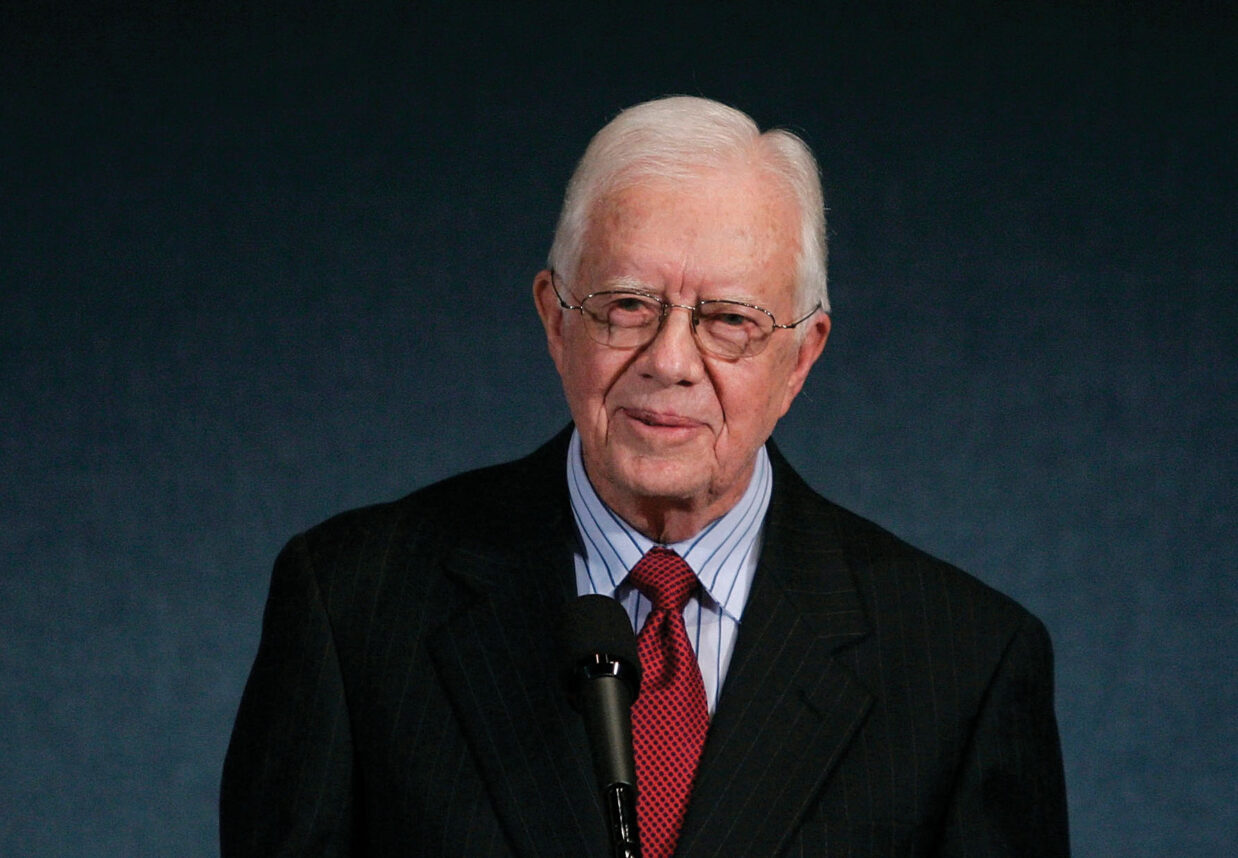
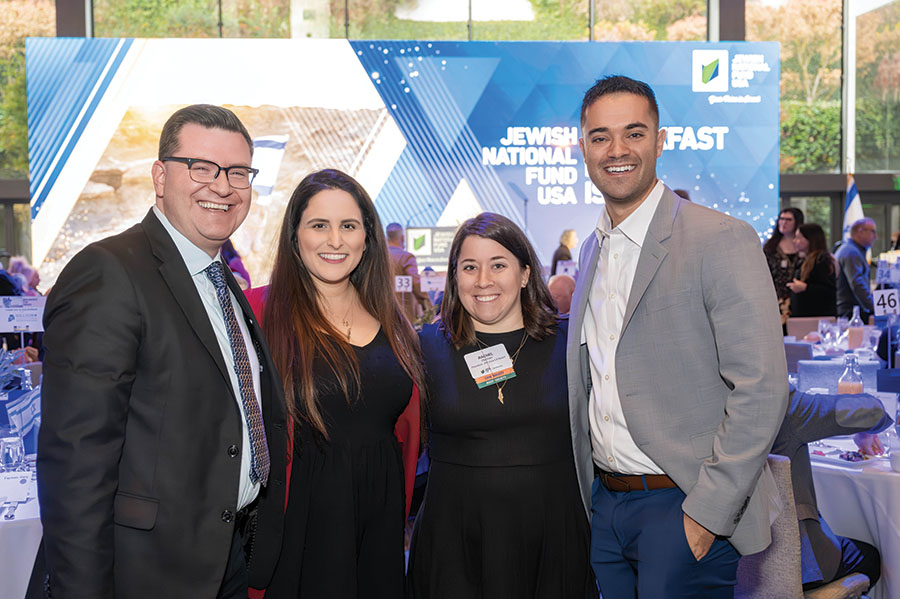
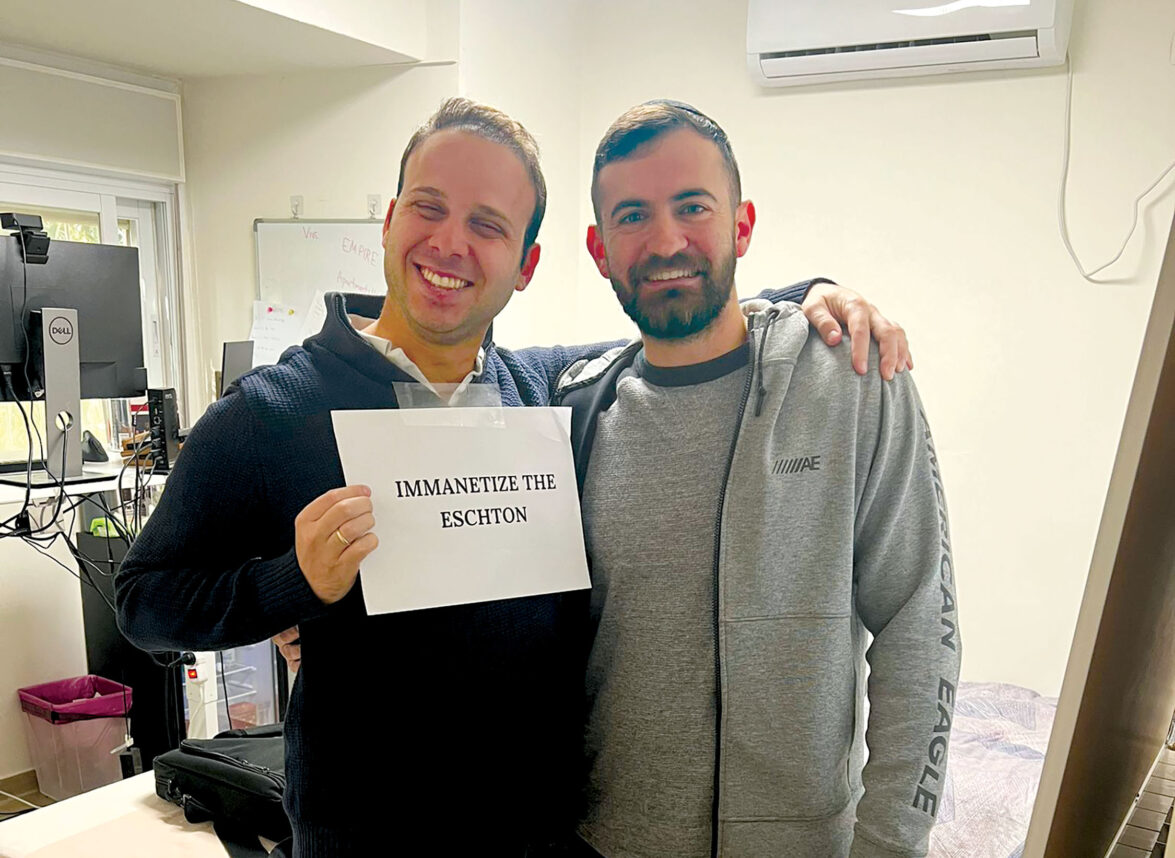


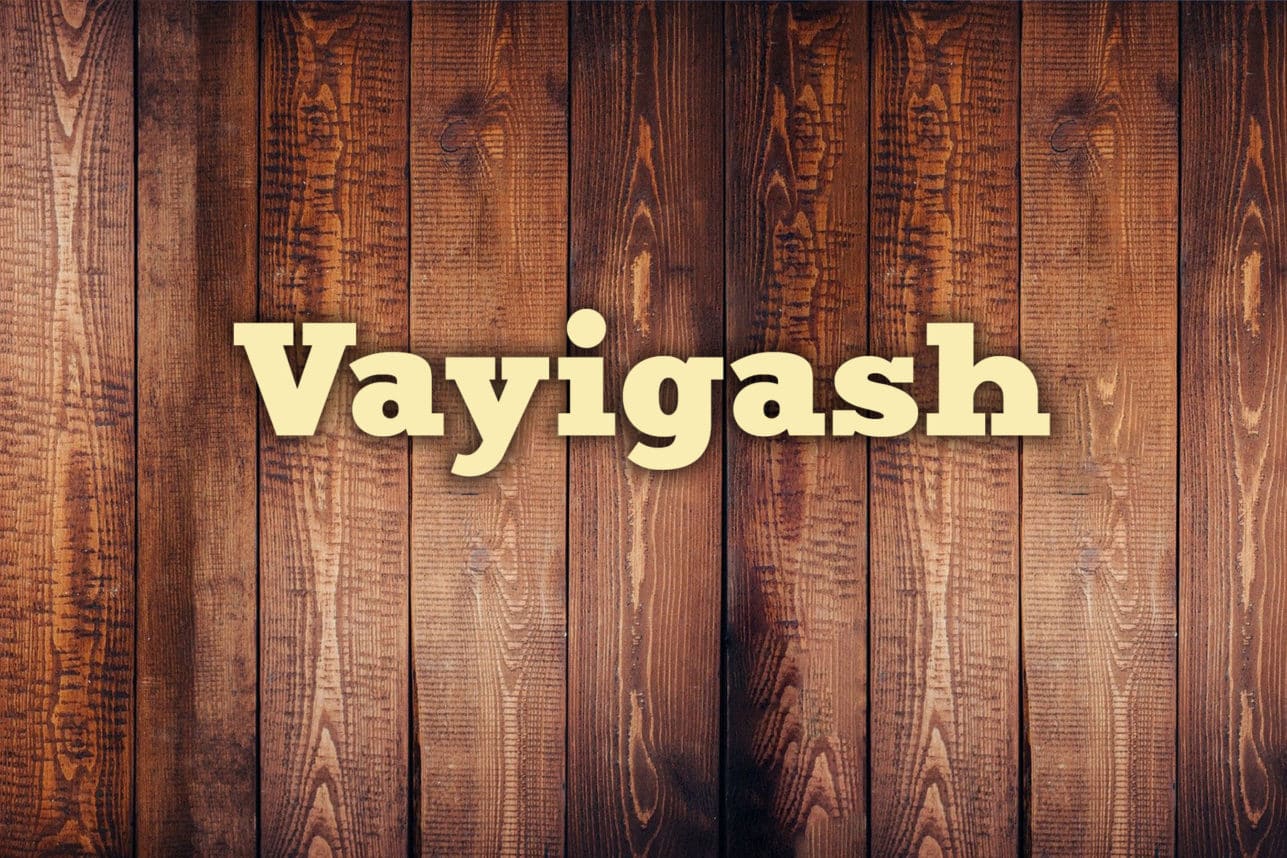





 More news and opinions than at a Shabbat dinner, right in your inbox.
More news and opinions than at a Shabbat dinner, right in your inbox.